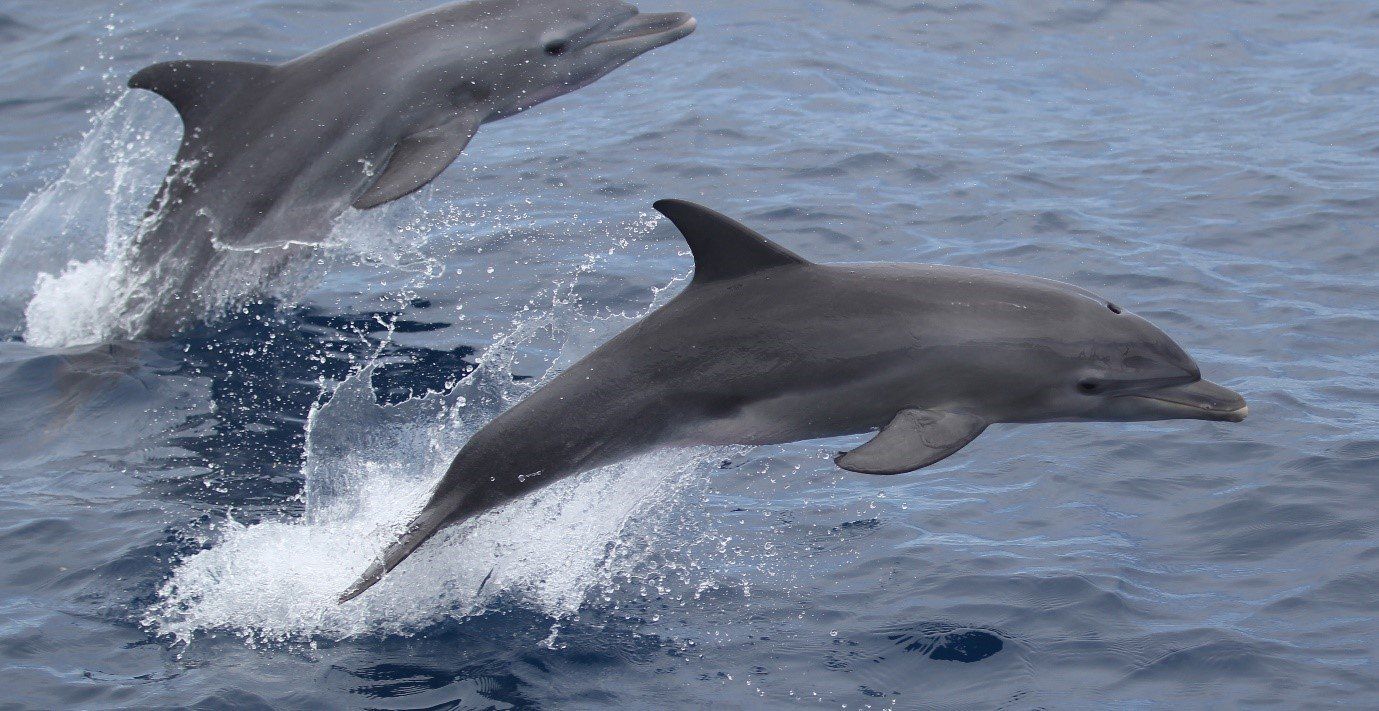Synchronising Behaviour in Bottlenose Dolphin Male-Alliances.
Synchronised behaviour is seen in many mammals and is often linked to competition for resources. However, in several species, including humans and grey seals it has been linked to cooperation. This is also seen in the Indo-Pacific dolphin in Shark Bay, Australia.
Dolphins are known to be a group-forming cetaceans, where females tend to form strong bonds with many individuals and males form strong bonds with fewer individuals. This has led to small groups of males referred to as “alliances”. A “first order” alliance consists of 2-3 individuals who are often related to each other. A “second order” alliance is built up by several “first order” alliances and can be between 4 and 14 individuals.
These alliances are strong and stable and can last for decades. The main purpose for male alliances is to maximise reproductive success, by cooperating in events called consortships, where male dolphins herd a single oestrous female to reproduce with. One single male does not have the ability to herd and guard a female from competitive males alone, it is therefore an advantage to form alliances. Alliances can also steal females from other alliances.
Motor-synchrony is important in these male groups, and members of “first order” alliances have been seen to perform synchronised aerial and underwater leaps and turns. “Second order” alliances are mostly synchronised while chasing females. However, motor-synchrony may not be the only synchronised cooperative behaviour in these dolphins. Recent observations state that male-alliances are producing coordinated calls, which may be linked to the herding of females for reproduction. Moore et al. (2020) investigated this behaviour and found strong evidence supporting this suggestion.
During consortships males use low frequency pulsed calls, called “pops”. These calls function as a threat of physical harm to females and forces the female to follow the alliance. The production of pop trains is almost limited to consortships and may also aid in the guardship of captured females. They were first thought to only be produced by single males. However, in the study by Moore et al. (2020) it was evidenced that pop trains of individuals in the same alliance can, and often do overlap (multi-male pop trains). Individual pop trains often vary in the number of pops per train and in the length of the inter-pop intervals. However, multi-male pop trains appeared to be highly coordinated both in length and timing. This supports the hypothesis of acoustic cooperation during consortships. For consortships to be successful, males are dependent on each other and must cooperate, synchronising motor-and acoustic behaviour is thought to reduce tension between males, which would facilitate cooperation.
Fast-forward to 1:00 to see and hear a male dolphin using pop trains.
Synchronising behaviour in humans is activated by the release of the hormone oxytocin, which has led to a suggestion that this might be the case for dolphins as well. However, it remains to be investigated.
To conclude, male Indo-Pacific dolphins have been documented to form alliances in association with consortship behaviour. These alliances include cooperation in the form of motor- and acoustic synchronisation. This behaviour is thought to reduce tension between males and enhance reproductive success and is likely necessary for reproductive success as single males are unable to “capture” and protect females alone. The mechanisms behind this behaviour, however, remains to be investigated.
References:
Connor, R.C., Krützen, M., (2015), Male dolphin alliances in Shark Bay: changing perspective in a 30-year study, Animal Behaviour, Vol. 103, pages 223-235
Moore, B.L., Connor, R.C., Allen, S.J., Krützen, M., King, S.L., (2020), Acoustic coordination by allied male dolphins in a cooperative context, Proceedings of the Royal Society B Biological Sciences, Vol. 287, Issue 1924
Image: Braulik, G., Natoli, A., Kiszka, J., Parra, G., Plön, S. & Smith, B.D., (2019), Tursiops aduncus . The IUCN Red List of Threatened Species 2019: https://dx.doi.org/10.2305/IUCN.UK.2019-3.RLTS.T41714A50381127.en. Downloaded on 04 June 2020.
SHARE THIS ARTICLE














